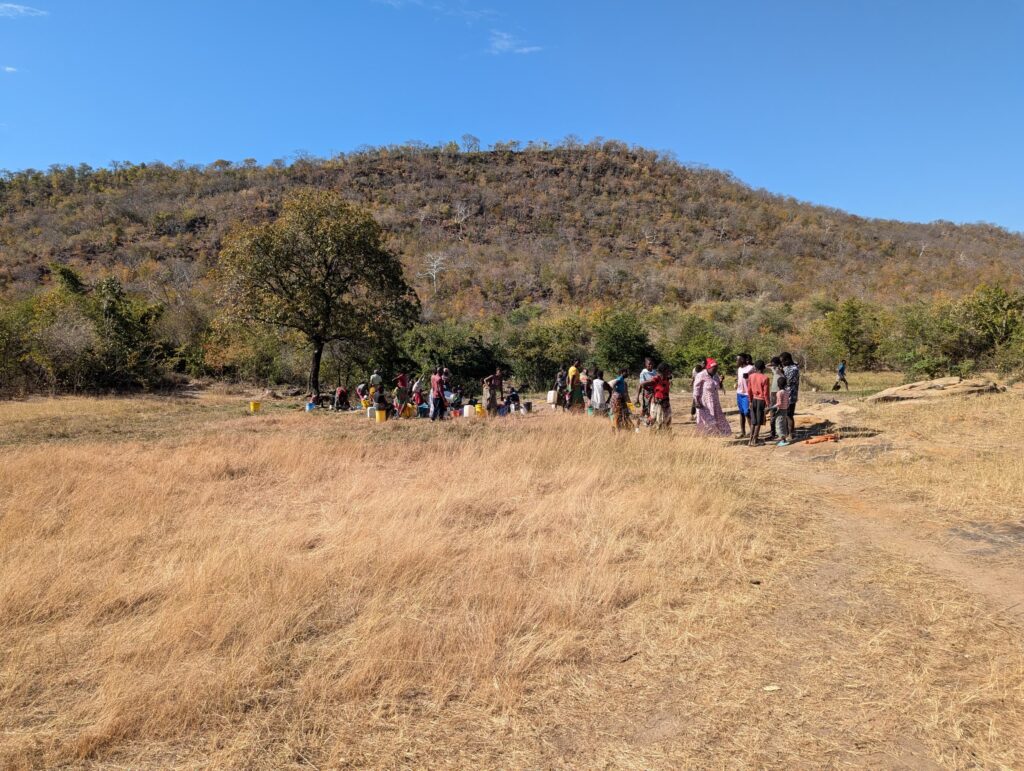A glance at Sinazongwe, shows that the district is one of the three Gwembe rural valley districts located in Sinazongwe Chiefdom, of Southern Province. It lies within Zambia’s Agro-ecological region I, with generally hot and dry climatic conditions. Temperatures can rise up to 40 degrees Celsius during the summer and rainfall patterns follow an uneven distribution, with more than 70% probability of drought. This exposes the district to extreme and adverse effects of climate change. This situation has over the years affected the potential of farming and animal husbandry as a business, making it very difficult for local people who are willing to venture into it. Coal mining has since remained one of the most common economic and socially popular business in Sinazongwe. The district has visible coal mining operations managed by different firms such as Sezic Resources Limited in the Kayuni and Maamba Collieries Limited in Maamba both in Mweemba Chiefdom, then Collum coal mine in Nkandabwe ward in Sinazongwe Chiefdom respectively.
It is encouraging and good news to learn of Collum Coal mine and the Council of Sinazongwe district working together to rehabilitate community roads in Sinazongwe district’s Nkandabwe mining area. This is indeed a fitting reflection of how best local businesses, and especially the mining companies in Zambia are able to join hands in support of development that benefit the local people. It is however, encouraging to see that, the efforts which stakeholders from the Sinazongwe district environment platform (SiDEP) had put together to come up with a consolidate district Corporate Social Environment Responsibility (CSER) strategy and plan are beginning to show. Undoubtedly, most of the mining companies locally and globally have shown demonstrable consistence and interest towards support to communities where they are working, and ensuring human and environmental security as a way of giving back.
The move by Collum Coal is worth documenting and commending. This is especially that the people of Sinazongwe, and stakeholders including traditional leaders, have during many consultations with CEJ agreed that the local road network needed a boost, in the short term. From the rehabilitation of local roads, CEJ is hopeful that some of the urgent needs of the local youths and women will also be attended to. These include support towards the development of recreation facilities, boosting cooperatives, and development of alternative livelihood ventures through non mining investments in bee keeping, sorghum production, fish farming, and goat raring.
CEJ is happy that finally, the fruits of consolidating, or harmonizing often different, and competing community and company-business priorities of the mining companies and local people in Sinazongwe, where coal mining is big businesses are paying off. For decades, stakeholders and especially Civil Society through platforms such as Publish What You Pay (PWYP) campaign, and Centre for Environment justice (CEJ) through its Corporate Social Environment Responsibility (CSER) model, have been relishing to see as many mining conglomerates putting their Corporate Social Responsibility (CSR) principles and beliefs into reality, especially by helping the local authorities in maintaining or building roads and ensuring that they remain passable, and accessible to local communities. What Column Coal has therefore shown, is that local investors do understand the impact of heavy mining equipment and transportation on roads, and the environment at large. Initially, Sinazongwe district council have lived up to their mandate and have been responsible in maintaining the local roads around the business district and residential areas of the area, with the road development agency taking lead in developing and recondition important trunk roads such as Bottom Road, and the Sinazongwe Kayuni roads.
Maamba Coal Mine (MCM) during the peak of the Covid 19, invested almost 12,000 USD, towards the procurement of oxygen equipment at the local hospital, apart from attaching its company medical doctor. They are other companies like First Quantum Minerals (FQM), which have invested in agriculture, and climate change resilience initiatives to benefit local communities near its operations.


